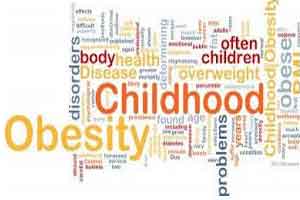- Home
- Editorial
- News
- Practice Guidelines
- Anesthesiology Guidelines
- Cancer Guidelines
- Cardiac Sciences Guidelines
- Critical Care Guidelines
- Dentistry Guidelines
- Dermatology Guidelines
- Diabetes and Endo Guidelines
- Diagnostics Guidelines
- ENT Guidelines
- Featured Practice Guidelines
- Gastroenterology Guidelines
- Geriatrics Guidelines
- Medicine Guidelines
- Nephrology Guidelines
- Neurosciences Guidelines
- Obs and Gynae Guidelines
- Ophthalmology Guidelines
- Orthopaedics Guidelines
- Paediatrics Guidelines
- Psychiatry Guidelines
- Pulmonology Guidelines
- Radiology Guidelines
- Surgery Guidelines
- Urology Guidelines
Prebiotics reduce body fat in overweight children

There may soon be a new tool in the fight against childhood obesity. Prebiotics reduce body fat in children who are overweight or obese by altering their gut microbiota, according to new research published in Gastroenterology, the official journal of the American Gastroenterological Association (AGA). Prebiotics are non-digestible food ingredients (such as fiber) that act as fertilizers to help stimulate the growth of good bacteria already in the gut, different from probiotics, which introduce new bacteria into the system.
"This is a well-designed trial that demonstrates how a prebiotic could potentially help combat one of the most prevalent and costly conditions afflicting children in the developed world -- overnutrition -- by targeting the gut microbiome," said Geoffrey A. Preidis, MD, PhD, a member of the AGA Center for Gut Microbiome Research and Education scientific advisory board. "It is promising to see this evidence that alteration of the gut microbiota can be used to restore health. As a clinician, I hope that continued research into prebiotics will lead to a new strategy for the treatment of obesity."
For this study, researchers from the University of Calgary, Alberta, Canada, performed a double-blind, placebo-controlled trial with 42 participants. Participants included children, 7 to 12 years old, who were classified as overweight or obese (>85th percentile of body mass index) but otherwise healthy. Participants were randomly assigned to groups given either the prebiotic fiber -- oligofructose-enriched inulin -- or a placebo, once daily for 16 weeks. The prebiotic was provided as a white powder, mixed in water.
"Powdered fiber, mixed in a water bottle, taken once a day is all we asked the children to change, and we got, what we consider, some pretty exciting results -- it has been fantastic," added Raylene A. Reimer, PhD, RD, professor and researcher in the Faculty of Kinesiology at University of Calgary, who led the study.
Based on four-month intervention data, the annual projected body weight increase in the prebiotic group would be 3 kilograms (6.6 pounds), within the expected healthy range, whereas the projected increase in the placebo group was 8 kilograms (17.6 pounds), almost triple the expected yearly weight increase. Thus, supplementation with the prebiotic improved outcomes in children who were overweight or obese. Importantly, the researchers show that the prebiotic induced specific gut bacterial shifts compared to placebo.
This is the first randomized controlled study to assess comprehensive changes in gut microbial composition with prebiotic intervention in children who are overweight and obese. Excess weight in childhood tends to persist into adulthood and is an early risk factor for obesity-associated morbidity and mortality, highlighting the importance of early intervention.
The metabolic and microbial findings from this study provide a foundation for a larger clinical trial in the pediatric population. Prebiotics are inexpensive and non-invasive and therefore a plausible dietary treatment in the overweight and obese pediatric population.
For more details click on the link : Alissa C. Nicolucci, Megan P. Hume, Inés Martínez, Shyamchand Mayengbam, Jens Walter, Raylene A. Reimer. Prebiotic Reduces Body Fat and Alters Intestinal Microbiota in Children With Overweight or Obesity. Gastroenterology, 2017; DOI: 10.1053/j.gastro.2017.05.055

Disclaimer: This site is primarily intended for healthcare professionals. Any content/information on this website does not replace the advice of medical and/or health professionals and should not be construed as medical/diagnostic advice/endorsement or prescription. Use of this site is subject to our terms of use, privacy policy, advertisement policy. © 2020 Minerva Medical Treatment Pvt Ltd